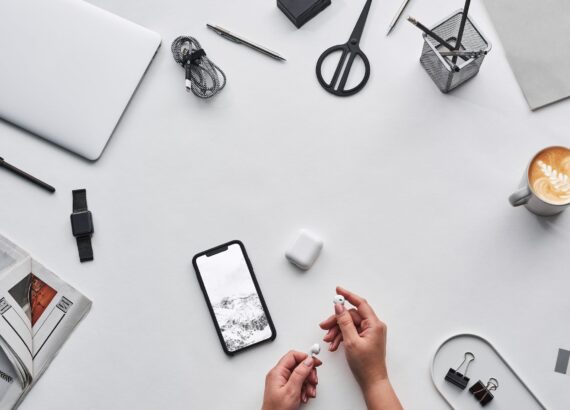Sleep hygiene is the habits and practices that are conducive to sleeping well on a regular basis. Without practicing effective and consistent sleep hygiene, it is difficult for our bodies to know when it’s time to wind down and doze off. I do this all the time, and about 6 months took the decision to leave my iPhone downstairs so I cannot be tempted to look at it before I go to sleep. There are a few things you can do every night to ensure you get the most rejuvenating, restful sleep possible. I’ve put together a few guidelines to get you started!
Create a bedtime ritual
Do the same things each night to tell your body it’s time to wind down. This might include taking a warm bath or shower, reading a book, or listening to soothing music. Avoid any bright lights late at night, and resist watching TV or using other electronic screens before bed. Relaxing activities can promote better sleep by easing the transition between wakefulness and drowsiness.
Exercise daily
Vigorous exercise is best, however even light exercise, such as a brisk walk or some at-home yoga, is better than no activity. Exercise at any time of day, but not at the expense of your sleep.
Get comfortable
Sleep on a comfortable mattress and pillows, such as a Koala Mattress. It’s imperative that your mattress is comfortable and supportive. Usually, mattresses last about 9 or 10 years for most good quality mattresses. As well as this, invest comfortable pillows and make the room free of allergens that might affect you when dozing off.
Stick to a sleep schedule
Go to bed and wake up around the same time every night, even on the weekends. This helps to regulate your body’s clock and can help you fall asleep easier and stay asleep for the whole night.
Avoid caffeine or food late at night
Do not go to bed hungry or full to the brim, as the discomfort may keep you up. As well as this, limit how much you liquid drink before bed, to prevent disruptive middle-of-the-night trips to the toilet. Nicotine, caffeine and alcohol deserve caution, as well. The stimulating effects of nicotine and caffeine take hours to wear off and can wreak havoc on quality sleep. Lastly, even though alcohol might make you feel sleepy at first, it will most certainly negatively affect sleep later in the night.
Limit naps
Long daytime naps can also interfere with nighttime sleep, especially if you’re struggling with insomnia or poor sleep quality at night. If you choose to nap during the day (if you are lucky enough to get these), limit yourself to about 10 to 30 minutes and make it during the midafternoon.
Manage stress
In the modern day, we have so much to do and so much to think about, so it’s likely that our sleep will suffer as a result. To help restore peace, consider healthy ways to manage stress. Start with the basics, such as getting organized, setting priorities and delegating tasks. Give yourself permission to take a break when you need one. Before bed, jot down what’s on your mind and then set it aside for tomorrow.
Don’t lose sleep any longer! Stick to these 7 helpful tips so you can get the most out of your time under the covers.
Bedroom image by ShutterStock.






